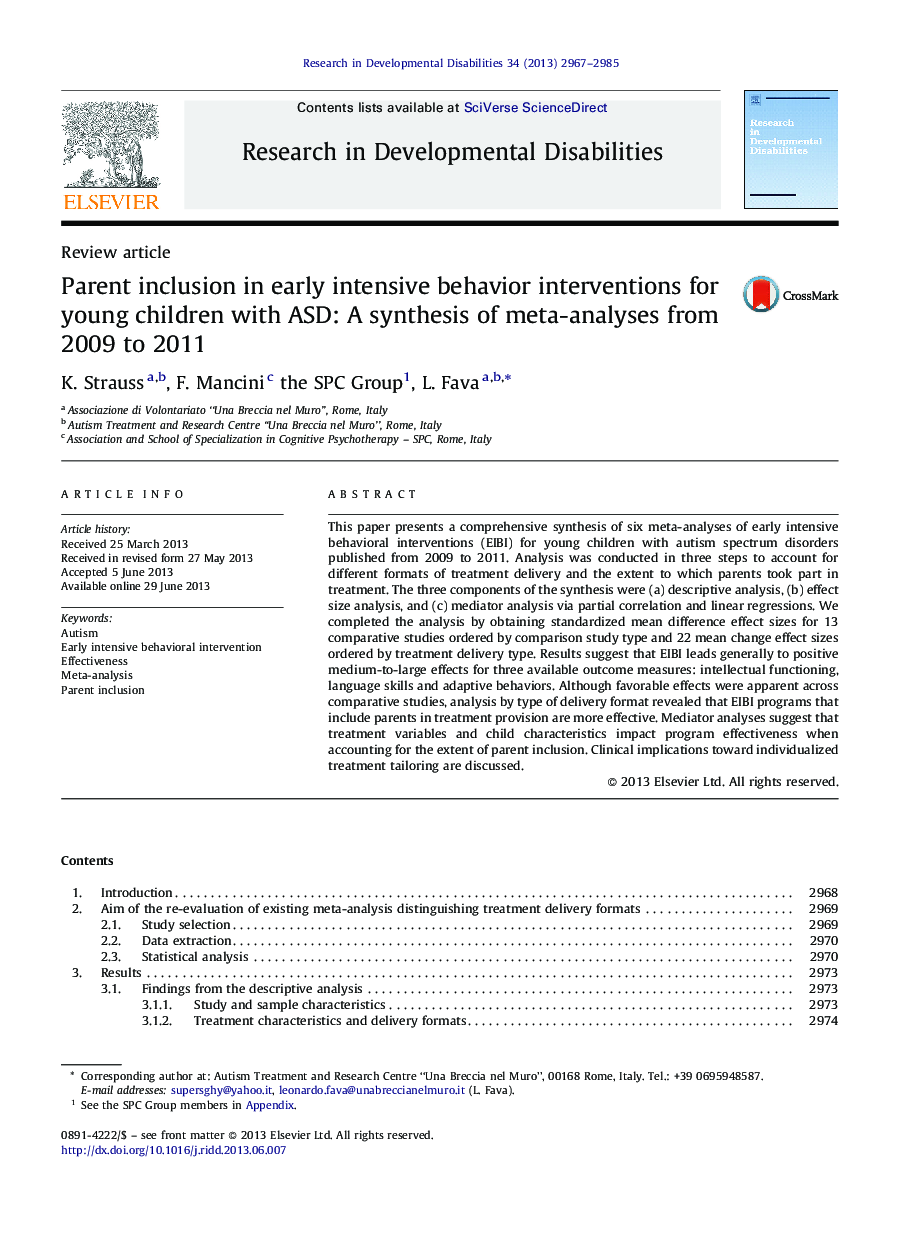| Article ID | Journal | Published Year | Pages | File Type |
|---|---|---|---|---|
| 10317792 | Research in Developmental Disabilities | 2013 | 19 Pages |
Abstract
This paper presents a comprehensive synthesis of six meta-analyses of early intensive behavioral interventions (EIBI) for young children with autism spectrum disorders published from 2009 to 2011. Analysis was conducted in three steps to account for different formats of treatment delivery and the extent to which parents took part in treatment. The three components of the synthesis were (a) descriptive analysis, (b) effect size analysis, and (c) mediator analysis via partial correlation and linear regressions. We completed the analysis by obtaining standardized mean difference effect sizes for 13 comparative studies ordered by comparison study type and 22 mean change effect sizes ordered by treatment delivery type. Results suggest that EIBI leads generally to positive medium-to-large effects for three available outcome measures: intellectual functioning, language skills and adaptive behaviors. Although favorable effects were apparent across comparative studies, analysis by type of delivery format revealed that EIBI programs that include parents in treatment provision are more effective. Mediator analyses suggest that treatment variables and child characteristics impact program effectiveness when accounting for the extent of parent inclusion. Clinical implications toward individualized treatment tailoring are discussed.
Related Topics
Life Sciences
Neuroscience
Behavioral Neuroscience
Authors
K. Strauss, F. Mancini, the SPC Group the SPC Group, L. Fava,
